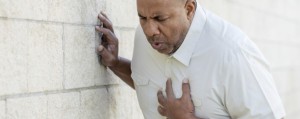 HYANNIS – The name says it all. “Sudden” cardiac arrest is immediate—an extremely dangerous occurrence precisely because it is so unexpected.
HYANNIS – The name says it all. “Sudden” cardiac arrest is immediate—an extremely dangerous occurrence precisely because it is so unexpected.
Or is it? A new study published last month in the Annals of Internal Medicineindicates that up to half of people suffering a sudden cardiac arrest have warning signs in the four weeks leading up to the event.
Those warning signs, if addressed, could help save the more than 35,000 Americans who die from sudden cardiac arrest every year. Today, fewer than 7 percent of patients survive a sudden cardiac arrest; the event is almost always fatal if medical intervention does not occur within the first 10 minutes, according to the study’s lead author, Sumeet Chugh, MD.
The study, done at the Heart Rhythm Center at Cedars-Sinai Medical Centerin Los Angeles, included 839 patients, ages 35 to 65. Their symptoms were tracked prior to experiencing a cardiac arrest between 2002 and 2012. Researchers also interviewed first responders and patients’ family members.
Fifty-one percent of the people in the study experienced some warning symptoms before their heart stopped. More than nine in 10 had symptoms that recurred within 24 hours of their arrest.
Sadly, only 19 percent of the patients called 911. Those who did were more apt to have a history of heart disease. The good news was that nearly one-third of those who called 911 survived, versus just 6 percent of those who did not call.
Too often, a cardiac arrest is the first time a doctor sees a patient with coronary disease—and that can be too late, said cardiologist Lawrence McAuliffe, MD, of Cape Cod Healthcare Heart & Vascular Institute. He urges anyone who experiences any signs of heart distress to call 911 immediately.
“There’s a concern that you will go to the hospital and it turns out nothing is wrong, so we’ll send you home,” he said. “We would much rather send a person home without a cardiac issue than have them die at home. We don’t want you dying of embarrassment.”
Dr. McAuliffe said that he and his colleagues often scold patients who either drive themselves to the hospital or have a loved one do so. If you drive yourself, you risk having a car accident and killing yourself or others. If you have a family member drive you, they’re busy driving and can’t help you. Treatment is much faster if you call 911.
“Our EMS system is so good,” he said. “So let the hospital come to you for evaluation.”
People often confuse sudden cardiac arrest with a heart attack. The American Heart Association defines cardiac arrest as the abrupt and unexpected loss of heart function. While it is a subset of heart attacks, the two conditions are actually different.
Heart attacks are caused by a blockage that stops blood flow to the heart. This causes the death of heart muscle tissue due to lack of blood flow, but does not automatically cause the death of the person.
Sudden cardiac arrest is caused when the heart’s electrical system malfunctions, causing abnormal or irregular heart rhythms. When this happens, every minute counts in saving a life.
Dr. McAuliffe said he does not usually ask patients if they have chest pain, because many are more likely to feel pressure in their chest than actual pain.
Among the warning signs of impending cardiac arrest:
- Shortness of breath while doing activities of daily living, such as housecleaning, grocery shopping or running errands.
- Back, elbow and shoulder discomfort
- For women, jaw discomfort can be a sign
- Pain on the right side of the chest is equally important as on the left side
- Exertional nausea or indigestion
“After their event, some patients – presuming they’re resuscitated successfully – can note that they’ve have had some symptoms along the way which can be as subtle as a change in exercise tolerance or exercise fatigue,” Dr. McAuliffe said. “A lot of times they don’t realize how bad they were feeling until after we have intervened, either with stenting or bypass. But in looking back once they had been successfully treated, their exercise tolerance, energy and well-being are much better.”

























Speak Your Mind